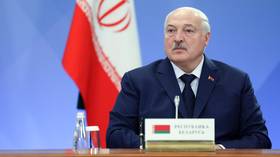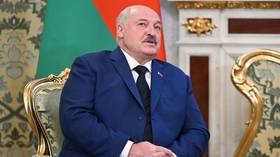..
CSIS persuaded Turkey to hide recruitment of operative
who trafficked teens to Islamic State
Globe and Mail,
September 29, 2022
The most senior intelligence officer in charge of covert operations at the Canadian Security Intelligence Service went to Ankara in March, 2015, to persuade Turkish authorities to stay silent about the agency’s recruitment of a Syrian human smuggler who trafficked three British teenage girls to Islamic State militants, according to three sources.
The sources said the officer, Jeffrey Yaworski, who was at the time CSIS’s deputy director of operations, was carrying out a discreet but high-level campaign to prevent the spy agency from being publicly blamed for using the smuggler as an operative. The Globe is not identifying the sources because they were not authorized to discuss national security matters.
One of the sources said Turkey eventually agreed to Mr. Yaworski’s request, but punished Canada by limiting the number of CSIS agents operating at the Canadian embassy in Ankara. CSIS also promised that any further clandestine activities in the country would be conducted as joint operations with Turkish intelligence, the source said.
The smuggler, Mohammed al-Rashed, was arrested by Turkish authorities on Feb. 28, 2015, within days of when he helped the girls cross the Turkish border into Syria. His capture threatened to place Canada at the centre of an international incident, after Turkish media reported that he had shared the girls’ passport details with CSIS, and that he had smuggled other British nationals seeking to join the Islamic State.
At the time of his arrest, Britain’s Scotland Yard had been frantically searching for the girls, and Turkey was unaware that CSIS had an Islamic State double agent operating in the country.
Turkey never publicly confirmed CSIS’s involvement with Mr. al-Rashed after Mr. Yaworski‘s travels to Ankara. The sources said he visited Turkey at least two times to meet senior Turkish officials in the aftermath of the operative’s arrest. One of the sources said Mr. Yaworski was trying to put the operational mess “back in the box.”
During the first visit, another source said, Mr. Yaworski apologized and asked the Turks to release Mr. al-Rashed, which Turkey declined to do because of the intense publicity in Britain about the missing girls. Turkey also did not want to be blamed for freeing an Islamic State human smuggler, since Ankara had been heavily criticized for failing to stop the flow of foreign fighters into Syria, the source said.
Mr. Yaworski declined to comment on his interaction with Turkish authorities, saying through an intermediary that he is bound by the secrecy provisions of the Security Information Act.
CSIS also declined to discuss the matter. “There are important limits to what CSIS can confirm or deny given the need to protect sensitive techniques, methods and sources of intelligence,” spokesperson Eric Balsam said in a statement.
Around the time Mr. Yaworski was holding secret talks with Turkish authorities, CSIS convinced British counterterrorism officials to cover up the agency’s role in the handling of Mr. al-Rashed. Those discussions were revealed in The Secret History of the Five Eyes, a new book by author Richard Kerbaj that recounts parts of Mr. al-Rashed’s story.
Mr. Kerbaj interviewed Richard Walton, the chief of Scotland Yard’s counterterrorism command, who said two CSIS officials came to see him shortly after the arrest of Mr. al-Rashed. They informed Mr. Walton that CSIS knew about the trafficking of the three teens and asked the British to obscure the spy agency’s role.
In his book, Mr. Kerbaj also wrote that CSIS sent an unidentified top official to Ankara to beg Turkey’s forgiveness for running a counterintelligence operation in their country. Mr. Kerbaj subsequently learned that the official was Mr. Yaworski, and that he had travelled to Turkey on at least two occasions after the arrest of Mr. al-Rashed. As deputy director of operations, Mr. Yaworski was responsible for all undercover missions, including recruitment and running of spies.
Mr. Kerbaj provided Mr. Yaworski’s name to The Globe and Mail last week, and the three sources later confirmed that he had travelled to Ankara.
The Globe has reported, citing a source with direct knowledge, that Mr. al-Rashed was freed on Aug. 5 after serving years in a Turkish prison on terrorism and smuggling charges, including for trafficking the three British girls, who were aged 15 and 16 at the time. The source said CSIS had planned to relocate him to Canada after his release. The government will not say if he has been granted asylum.
==============================================================================================
Rex Murphy: The Liberals are so far out of touch
it probably can't be measured
Canadians need the Trudeau government to deal with the realities of
skyrocketing fuel, food and mortgage costs
Author of the article Rex Murphy
Publishing date: Oct 03, 2022
Prime Minister Justin Trudeau speaks during a Countdown to COP15 leaders event about climate change in New York City on Sept. 20, 2022. Rex Murphy wishes the Liberals would concentrate their energies on such domestic issues as inflation, soaring fuel costs, lack of clean drinking water on First Nations and government inefficiency. PHOTO BY BRYAN R. SMITH / AFP VIA GETTY IMAGES
The greatest and most characteristic failure of the Trudeau administration has been its war against the oil and gas industry. It was so-early signalled. There is, for example, this brilliant pat-on-his-own-back — a yoga twist Mr. Justin has perfectly mastered — from nine years ago:
“I am pleased to announce that we will keep our commitment to implement a moratorium on crude oil tanker shipping on British Columbia’s north coast.”
From out of that deep but callow mindset came the blocking of pipelines, the wretched, useless (and in this time of rampant inflation) insulting so-called “carbon taxes,” the supine genuflections to the international global warming extremists, the hobbling of a mighty natural resource, and latterly the incredible elevation of a one-time Greenpeace activist and tower-climber, Steven Guilbeault (name his other qualifications), to a ministry in a supposedly mature national government.
The second greatest failure is a corollary of the first, the disregard, perhaps reaching to contempt, for the interests of the Western provinces. It amounts to the prime minister establishing a two-tier Confederation.
I am very well aware that I have made this observation many times before, but that puts no halt on my restating it: If oil and gas were the principal industries of Ontario, or especially Quebec, a drawing of an oil pipeline, or better yet that of an oil barrel, would long ago have supplanted the maple leaf on the Canadian flag.
How ever did global warming become the principal policy and obsession of the government of this vast, cold, main northern nation? If Canada were one of those tiny islands that shoot out warnings that they will be submerged in the apocalypse-to-come, it might be understandable.
The Maldives, for example, have staged their worry on this point. They held a televised “underwater cabinet meeting” to “raise awareness” of global warming. They gurgled very impressively, air bubbles drifting upwards, but, note, they still have land-based governance.
Of the thousands of islands in the Maldives that are barely above sea level, none have disappeared yet.
But Canada? Here’s a raw question too rarely asked — what’s our concern in all this? Why is global warming the principal and sternest policy of a Canadian government? Can we change China, India, Russia by our example? Beyond the burnishing of Trudeau’s credentials as the most self-advertised woke politician, what is it all about? Is Canada a heat furnace? Does Newfoundland threaten the global thermostat?
With the Canadian press asking stern questions about “carbon emissions policy” and which party has the “best” one, will no one ask the essential question: What benefit to Canada flows from “carbon reduction” schemes? Why does the Canadian government embrace global warming as the principal theme of national governance? Most succinctly, will no one in the press gallery ask the prime minister this question: What does it matter what we do?
Are there not wells to clean, passport lineups to shorten, inflation to worry about, estrangement from the Confederation to address?
Next question: Why has an international agenda, supported by every liberal billionaire and dogmatist of the warming crusade, become the key, near genetic, policy of the Trudeau administration? As Hillary Clinton so famously asked, “What difference, at this point, does it make?”
Can no one in the national press ask why it is important, or in any way consequential, or has any impact on any other government in the world, that Trudeau taxes Canadian gasoline and heating fuel in the “fight against global warming?”
Are there not wells to clean, passport lineups to shorten?
Why his personal and shallow preoccupations, and those of his ideologically driven mentor, Gerald Butts, are shaping the destiny of our nation? Canada is not a footnote to the Intergovernmental Panel on Climate Change.
It may be fine for cabinet ministers flying abroad, a PM with his private air accommodation, and MPs with solid salaries not to care about pump prices or the jump in food costs and mortgage payments, to ignore reality and stick with the global warming fixation. But it is not for most Canadians, and certainly not for the poorest of them, which should always be our care.
And equally to the point, now that the blizzard of scandals and missteps, the airport clogs, the passport shambles, the WE scandals and the summoning of the near wartime Emergencies Act, have precipitated a drastic fall in the polls and signalled the “horror” of “Trumpian” Pierre Poilievre in the ascendant, would it be possible for the Trudeau government to stop role-playing on the international stage and tend to the less glamorous business of keeping Canada secure and stable?
It's my contention that Trudeau has always considered the Prime Minister of Canada as being a stepping stone to something more grand and fitting to his ego.
The current administration is so far out of touch I am not sure a measurement for the distance is available.
=============================================================================================






























